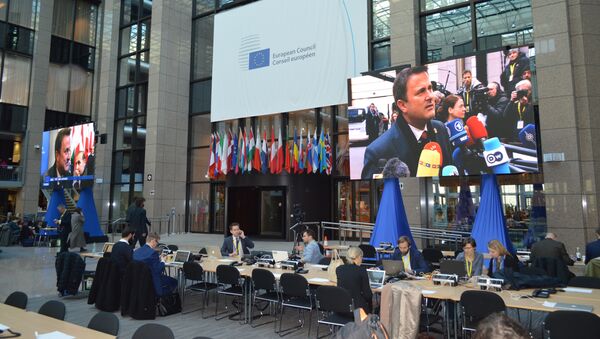On December 15th, the leaders of the 28 EU member states gathered in Brussels for the final European Council meeting of the year. It wasn’t an easy year for the Union, with Britain voting to leave and troubled newe allies like Ukraine asking for more support, both political and financial. The EU-Ukraine association agreement, which was also on the agenda of the final EC meeting, was blocked by the Netherlands when 61.59% of Dutch voters rejected the treaty during a national referendum in April.
Even though Ukraine was able to obtain visa-free EU travel for its citizens, it didn’t get support to resolve bigger issues, such as a closer association with Europe and the perspective of becoming a EU member in the near future. “Doctor’s orders’” from Brussels authorities were the same as before: first Kiev authorities will have to root out corruption and ensure Ukraine’s rights and democratic standards match those in the bloc.
At the same time, the constant winding of the sanctions spiral against Russia over the Ukraine crisis started causing more irritation in countries like Greece, Italy, Spain, Austria and Hungary.
The European Council convened longer than usual, discussing the refugee problem, Ukraine and Russia. When asked about the extension of the restrictions at the news conference, the Council’s President Donald Tusk hinted that there were mainly two politicians who were responsible for the prolongation:
“There were no discussions because it was clear during our debates on different levels that our sherpas and our ambassadors have prepared in fact a decision on the prolongation of sanctions. What we needed today was only clear a recommendation and confirmation from Angela Merkel and Francois Hollande, as leaders of the so-called “Normandy Format.”
While Merkel’s hard stance on Russia may be part of her Christian Democratic Union’s 2017 election campaign, for Francois Hollande, who refused to run for presidency next year and whose Socialist Party already is losing the support of French voters, the anti-Russian stance may be just another hostile foreign policy move, similar to his other decisions, like the 2015 refusal to sell two Mistral-class warships to Russia.
Among other supporters of restrictions are Poland and the three Baltic states. But it’s unclear whether after Donald Trump’s victory in the US, Poland and the Baltic NATO members will be getting as much support from the US or their Western European allies.
The EU's restrictive financial measures target entire sectors of the Russian economy, including banking, energy and defense. Currently some 149 Russian citizens are banned from entering Europe.
Russia responded to restrictions in 2014 by banning many European food imports. As a result, mutual trade between Russian and European companies dropped by over $180 million, between 2013-2015.
We'd love to get your feedback at radio@sputniknews.com
Have you heard the news? Sign up to our Telegram channel and we'll keep you up to speed


